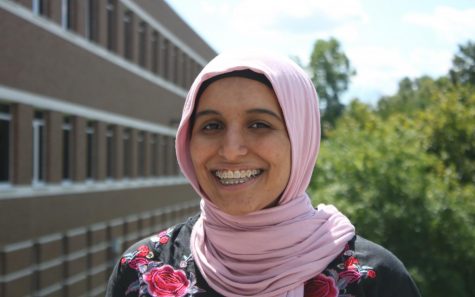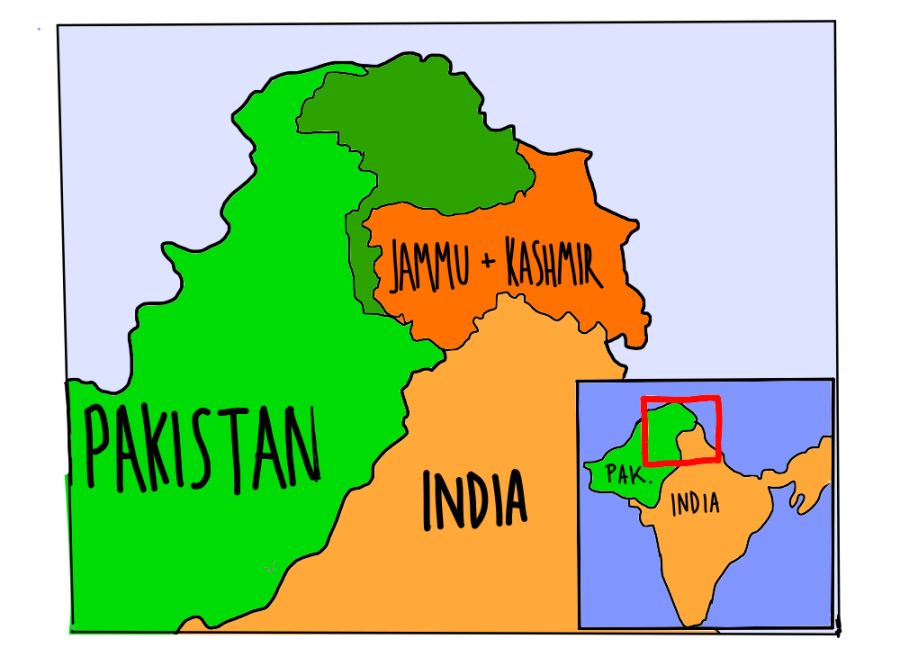Complications In Kashmir
In an unprecedented action, Indian Prime Minister Narendra Modi revokes Article 370, leading to strong public criticism
On Aug. 5, 2019, Jammu and Kashmir, an Indian administered territory of the land disputed between India and Pakistan (known as Kashmir), lost the special status it was granted by India back in 1947. The special status, or “autonomy” J&K had with India allowed the region to govern itself and make its own laws, a result of Article 370 in the Indian Constitution.
This recent loss of autonomy initiated by Prime Minister of India Narendra Modi included a lockdown and communications blackout, as well as 4,000 arrests (including politicians and 144 minors) according to global news outlet Al Jazeera, causing concerns about a humanitarian crisis. BBC News expanded on what exactly J&K has been like since the revocation of Article 370 in an article titled “Kashmir: Why India and Pakistan fight over it.
“Telephone networks and the internet were cut off in the region in the days before the presidential order was announced,” the article said. “Public gatherings were banned, and tens of thousands of troops were sent in. Tourists were told to leave Kashmir under warnings of a terror threat.”
As India maintained that the lockdown and curfew are in place as a protective measure against violence, senior Amrita Umamaheswaran, vice president of Troy High’s Model United Nations, disagreed.
“I think their general sentiment was to cause as much chaos [as possible] and their actual agenda is not to be a secular nation [but] just get that land and claim it as India’s,” Umamaheswaran said.
Senior Hari Sanil, president of MUN also believes that the move by Modi wasn’t a step toward peace.
“I don’t think what he did was right. I can understand the intentions, because obviously Modi is from a party that is conservative [and] religiously motivated, [but this is] a politically motivated action, that’s why he’s doing it,” Sanil said.
Senior Yusra Mahmood, who has relatives in Pakistan, explained what she thinks about the revocation of Article 370 and the actions that followed.
“I don’t agree with how the Indian government suddenly revoked the rights they gave to the Kashmiri people,” she said.
In terms of solutions concerning the disputed land, Umamaheswaran believes it would be best for Kashmir to be its own country, as long as it properly treats all of its residents.
“I think both the nations, India and Pakistan, should grant [Kashmir] complete autonomy, but I think in doing so you have to make sure that the Kashmiri government will also treat minorities and women right as well,” Umamaheswaran said.
Sanil leans in a different direction, calling for a solution leaning more toward compromise. He calls his solution a “condominium,”and cites Pheasant Island, the island that for the past 350 years has switched ownership between France and Spain every six months, as an example of a successfully shared state.
“Becoming its own country is not going to work. It doesn’t have enough population or an economy to sustain itself, so that’s why I think it should be a condominium,” Sanil said.
Mahmood disagrees with the idea of sharing and believes compromise can be utilized differently.
“Pakistan and India sharing is definitely not a good idea,” she said over text. “If people are suggesting this, they should research a bit, esp. about the relationship between India and Kashmir. I feel like a diplomatic approach would be better.”
Umamaheswaran and Mahmood agree that global awareness of issues is something everyone should be practicing. Umamaheswaran emphasizes the importance of doing research.
“It’s really good to do your research and then I think within doing that you’ll find yourself not flocking to one extreme side or another,” she said.
Mahmood also believes people should be aware of issues no matter where they take place.
“It’s important for everyday people to know what is going on in their world,” she said. “They shouldn’t just focus on their own lives or country but should consider what’s happening around the world, even if they might be thousands of miles away from an issue or conflict. Global awareness allows more people to become concerned, which can help spark action.”
Your donation will support the student journalists of Troy High School - MI. Your contribution will allow us to print our work, purchase equipment and cover our annual website hosting costs.


